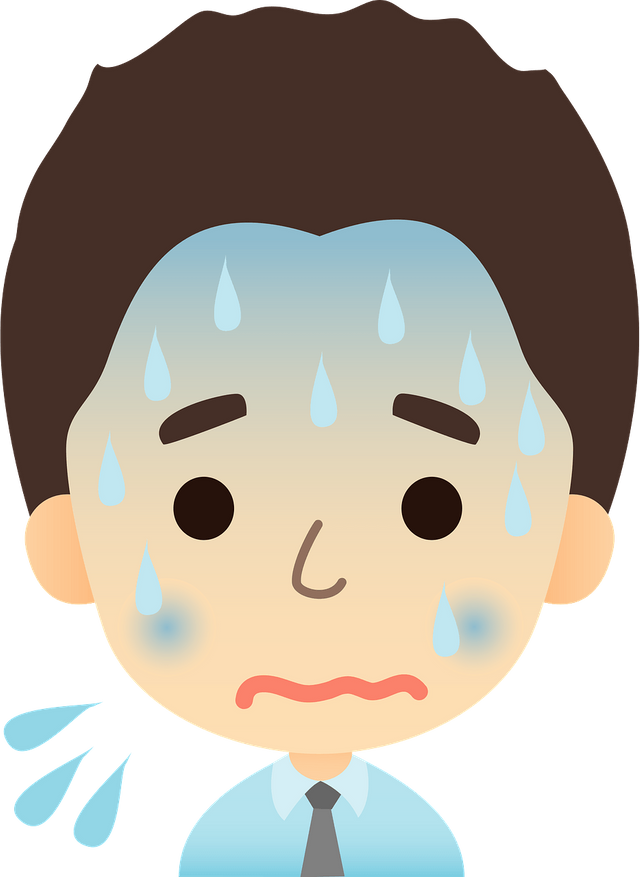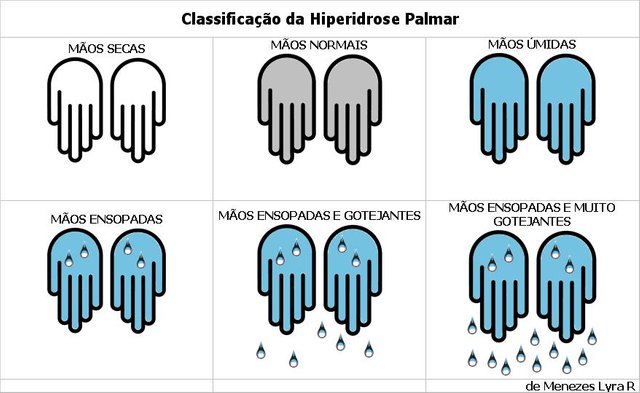Greetings friends of Steemit and Healthy Steem
| What are the common causes of hyperhidrosis, and how do they differ between primary and secondary hyperhidrosis? |
|---|
Condition is called hyperhidrosis which essentially just means excessive sweating and there are two main types of hyperhidrosis primary hyperhidrosis and secondary hyperhidrosis. Primary hyperhidrosis usually involves the Palms the soles or the armpits or some combination of those three. If someone has palm and sole involvement that usually starts in their childhood and if they have involvement in their armpits that excessive sweating usually shows up around puberty.
Secondary hyperhidrosis is not as common and this is excessive sweating due to an underlying condition that can be a genetic syndrome, an infection, a tumor, a medication that someone's taking and that kind of sweating can be localized so it can just involves the armpits or the groin or the hands or the feet or it can be generalized meaning that you have excessive sweating over the entire body. And as you can probably imagine if you're going to treat someone's excessive sweating it's really important to discern whether or not they have primary hyperhidrosis or secondary hyperhidrosis.
| How does hyperhidrosis affect the daily lives of those who experience it? |
|---|
Do you ever feel like you get a little too sweaty does the thought of wearing a gray t-shirt or shaking someone's hand make you uncomfortable.
| What treatment options are available for managing hyperhidrosis, and how effective are they? |
|---|
Primary hyperhidrosis has some very specific interventions if you have secondary hyperhidrosis the goal really is to figure out the underlying cause of that sweating and address it accordingly.
Whether it's from their armpits or their feet or their hands so it's quite obvious they also need to have excessive sweating ongoing for at least six months and of course you have to rule out other underlying causes of excessive sweating or secondary causes because of course then that means they have secondary hyperhidrosis in addition to meeting all three of those criteria for a diagnosis of primary hyperhidrosis.
Bilateral involvement so it shouldn't just involve one side of your body on set before the age of 25 years old. Generally there's a positive family history so someone else in your family has dealt with primary hyperhidrosis. It should happen at least once a week. It should disrupt your activities of daily life and the excessive sweating should go away when you sleep now of course you don't have to have a full-on diagnosis of primary hyperhidrosis to be bothered by how much you sweat or want to do something about it.
Lifestyle Interventions
So now let's get into the tips and treatments first up is lifestyle intervention. So this is going to include things like staying in cool climates avoiding humidity and hot weather or staying in air-conditioned rooms when possible obviously you have to adapt it to your life and lifestyle. The other thing is going to be wearing things like loose fitting clothing breathable Fabrics things that Wick moisture away and these might seem like really obvious and maybe boring tips but those are going to complement any more aggressive or invasive.
You can move on to incorporating some medical interventions and the first one I'm going to talk about is the use of antiperspirants before we dive deeper into antiperspirants. over-the-counter and prescription strength antiperspirants contains something called aluminum salts and aluminum salts temporarily deposit in the sweat ducts and block them from releasing sweat and usually prescription antiperspirants have higher concentrations of these aluminum cells in order to get your topical antiperspirant to work best we typically recommend applying it at night when sweating is diminished this really allows those salts to get into the sweat duct and exert their best effects.
| What are some misconceptions about hyperhidrosis that people should be aware of? |
|---|
I want to make one quick point which is antiperspirants are not the same as deodorants. Antiperspirants are topical products that we apply to stop or reduce sweating whereas deodorants are topical products that we apply to stop or reduce the odor associated with sweating but they do nothing for actual sweat production. If you are applying a deodorant in hopes that it's going to reduce how much you're sweating. you're going to be really disappointed.
Thank you for reading my post.
I would like to invite three fellow Steemians to participate in the contest
@chiagoziee
@eveetim
@alli001


Figuring out the underlying cause of the sweating in secondary hyperhidrosis which might be either from the medication and so on, and knowing the background of your sweating as either genetics in primary are the perfect key facts to fight hyperhidrosis as a person.
You can find it out yourself or find out for someone to be administered and given the right remedies like wearing light fabric, avoiding some lotion and many others.
Hyperhidrosis can be very annoying to many and so it needs to be taken care of.
I really love 💕 your detailed and knowledgeable explanation to this concept.
Thank you
Downvoting a post can decrease pending rewards and make it less visible. Common reasons:
Submit
Thank you for visiting my post and feedback.
Downvoting a post can decrease pending rewards and make it less visible. Common reasons:
Submit